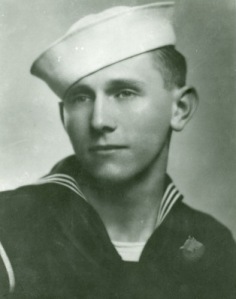
The United States Coast Guard was founded on a tradition of taking small boats into dangerous conditions to save lives. No one exemplified that more than Vancouver born Coast Guardsman Douglas A. Munro.
At Guadalcanal, Munro led a small flotilla of landing craft that Colonel “Chesty” Puller had requested to make a landing near the Manatikau as it would have been all but impossible to cross the river under fire. Munro’s landing craft landed 500 Marines who secured a hilltop under covering naval fire.
The Japanese attacked the Marines from hidden positions, cutting them off from the beach and salvation on the Coast Guard ships that were coming to relieve them. The Marines, without radios, stamped “HELP” in the sand and it was seen by a Navy dive bomber pilot who reported it back to the sailors and Munro’s teams at their base at Lunga.
It was determined that the flotilla of small ships would return to rescue the Marines. Munro volunteered to lead the landing craft. The enemy had surrounded the Marines on three sides and were delivering devastating fire. Munro positioned himself between the enemy and the beleaguered Marines.
As the evacuation proceeded, another landing craft grounded, and Munro ordered another landing craft to pull it off a sandbar while Munro again stationed his vessel between the enemy and the remaining Americans. A Japanese machine gun cut him down.
Munro’s heroism and leadership saved the 500 Marines that day and he was posthumously awarded the Congressional Medal of Honor. Those very Marines captured the Manatikau river in October which was the beginning of the end of the Japanese occupation.
His Medal of Honor is on display at United States Coast Guard Training Center Cape May, New Jersey, where it serves an everlasting example to new recruits about what it means to truly be a United States Coast Guardsmen.
For more history on Signalman First Class Douglas A Munro see the article at Historyonline.

